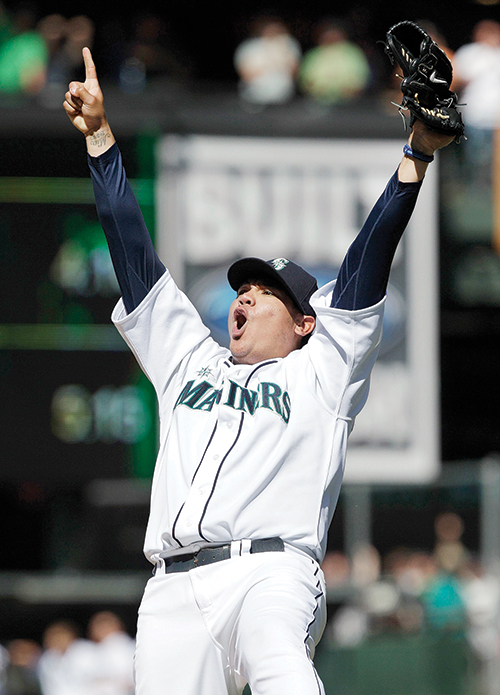
Last week, Seattle Mariners pitching phenom Felix Hernandez agreed to a seven-year, $175 million deal that not only is the largest contract for a major league pitcher, but one of the largest contracts in baseball history. Hernandez’s deal now stands above New York Yankees ace CC Sabathia’s seven-year, $161 million deal and the Los Angeles Dodgers’ recent six-year, $147 million agreement with Zack Greinke.
Of course, the Yankees are an age-old franchise that always seems to have money to burn, and the Dodgers, who were recently purchased by a group of savvy investors, have been spending money like it’s going out of style, so no one seemed to bat an eye when they both locked down a marquee name.
The Mariners, on the other hand, though not a low-payroll team, aren’t typically considered high rollers in the baseball community. After Seattle traded away Ichiro Suzuki to the Yankees, they had some extra cash to play around with, but following the acquisitions of Jason Bay, Michael Morse and Kendrys Morales this offseason—a $24.6 million payroll increase—was it worth the nine-figure price tag to keep Hernandez?
The fans obviously say yes. When Hernandez is on the mound, Safeco Field turns into a cacophony of applause and raucous chants. He even has his own cheering section in the stands, dubbed the “King’s Court.” After Ichiro left midseason, Hernandez was one of the very few things to cheer about in Seattle, so you will get little objection from the Mariners fan base.
However, critics disagree with the decision for a variety of reasons.
For one, this kind of high-end, long-term deal is extremely risky. Without an injury clause, the Mariners could lose millions if Hernandez were to get injured or require season-ending surgery. He has had a predominately healthy career, but even the smallest sign of wear-and-tear could spell trouble. Reports had sprung up that Hernandez’s right elbow has been giving him problems and that the completion of the deal was in jeopardy. Even though Hernandez managed to ease the doubts of Mariners executives, an elbow injury is nothing to scoff at, and could lead to disastrous consequences down the road.
Another case against the contract is the fact that the Mariners don’t exactly have the best offense. In 2012, Seattle had the lowest overall batting average, on-base percentage and slugging percentage in Major League Baseball. A pitcher, after all, is only as effective as the runs being scored by his team, so unless Hernandez can deliver a perfect game every week, the offense will need to be
beefed up.
It’s obvious that the Mariners kept Hernandez on for seven years to benefit the immediate health of the franchise. He will continue to put fans in the seats and be a marketable face. But should the Mariners have gone the Houston Astros route and spent a few years rebuilding their roster? We’ll find out in the spring.

